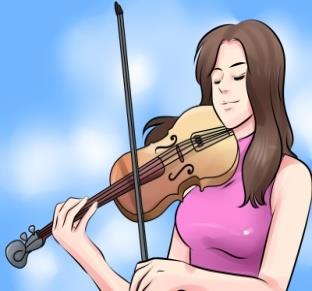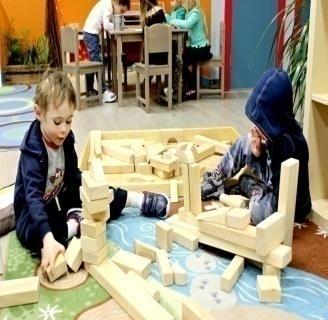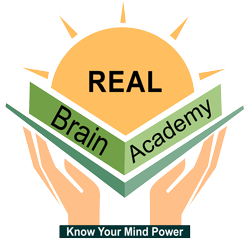DMIT REPORT
Learning Speed with ATD angle
The "ATD" angle is a dermatoglyphic trait formed by drawing lines between the triradii below the pinky finger, index finger, and lower part of the palm as shown.

Linguistic Intelligence
This intelligence has to do with words, spoken or written.
People with high Linguistic Intelligence have good command over their words, and language and are expressive in nature. They are typically good at reading, writing, telling stories, and memorizing dates and words.
People with high Linguistic Intelligence tend to learn through reading, taking notes, and listening to lectures. They are good at discussion and debate. They are good at explaining to others, teaching, and delivering speeches.
Remedies to develop your Verbal Linguistic Intelligence
* Play word games (e.g. scrabble, crosswords, up words).
* Join a book club.
* Attend a workshop on writing.
* Record yourself speaking and listen to the playback.
* Visit the library and bookshops regularly.
* Join a speaker’s club.
* Subscribe to a high-quality newspaper.
* Read a new book every month.
* Prepare an informal ten-minute talk for a business or community event on any subject or event.
* Learn to use a word processor.
* Listen and watch recordings of famous orators, e.g. Martin Luther King, Winston Churchill, and Adolf
Hitler.
* Keep a diary or write 250 words a day about anything in your mind.
* Find opportunities to tell stories to children and adults.
* Make up your own riddles and jokes.
* Attend a speed-reading seminar.
* Teach an illiterate person to read.

Logical-Mathematical Intelligence
This intelligence has to do with logic, abstract, reasoning, and numbers.
People with high Logical-Mathematical Intelligence are generally good in mathematics, chess, computer programming, puzzles, and other numerical activities.
People with high Logical Intelligence tend to be good in reasoning capabilities, scientific thinking, complex calculation, investigation, and analysis.
Remedies to develop your Logical-Mathematical
* Play logical/mathematical games (Go, Clue do) with friends & family.
* Avoid using a calculator for simple calculations.
* Learn to use Abacus and Vedic Maths.
* Work on logic puzzles and brain teasers.
* Learn basic computer programming languages.
* Read the business sections of the newspaper and look up unfamiliar economic or financial concepts.
Visit a science museum.
* Record yourself talking out loudly about how to solve logical or mathematical problems.
* Help your kids with their maths/science homework.
* Draw flowcharts of all the key processes in your department or area of work and then come up with
new ideas on how to make whatever service you provide more effective.
* Practice mental calculation whenever possible.
* Develop the habit of asking “Why”.

Visual-Spatial Intelligence
This intelligence has to do with vision and spatial judgment. People with high Visual-spatial Intelligence are usually very good at visualizing and mentally creating and manipulating objects. They are inclined towards artistic work and have a good visual memory.
People with high Visual-spatial Intelligence have a good sense of direction. They are also good at eye-hand coordination. High Visual Intelligence can make a person a preferred Visual Learner.
Remedies to develop your Visual-Spatial Intelligence
* Use pictures and symbols at meetings to represent important concepts or concepts that would take a
lot of words to describe.
* Draw a picture or diagram of a problem or issue to identify the root cause of the problem.
* Create a mind map of a problem or issue.
* Use diagrams and flowcharts instead of words.
* Make visual notes of what someone is saying rather than using words.
* Encourage yourself to sketch at the same time when you are thinking.
* Keep a personal sketchbook to draw pictures of your ideas.
* Join painting classes, and participate in drawing competitions.
* Work on Jigsaw puzzles, Visual Puzzles, or any other puzzles.
* Learn photography.
* Study geometry.
* Learn an ideographical-based language like Chinese.
* Purchase a visual dictionary and use it for your reference.
* Learn how to use a flow chart, decision trees, diagrams, and other forms of visual representations.

Naturalist Intelligence
This intelligence has to do with understanding the natural world of plants and animals, and noticing their characteristics and behavior.
People with high Naturalist Intelligence are generally good at observation. They are environment centric and have a great love for nature. They love greenery, river, mountains, beaches, etc.
Remedies to develop your Naturalist Intelligence
* Use all the senses while studying.
* Create observation notebooks.
* Create mind maps to explore, categorize and develop your thinking about problems and issues.
* Describe changes in the local or global environment that affect you.
* Become involved in the care of pets, wildlife, gardens, or parks.
* Use binoculars, telescopes, microscopes, or magnifiers to see things differently.
* Draw or photograph natural objects.
* Watching animal behavior (squirrels or birds in the schoolyard).
* Use a microscope, telescope, binoculars, or hand lens.
* Discerning changes outdoors over the course of the school year.
* Watching the weather (to learn weather forecasting).
* Notice ecological principles in action (e.g. decomposition of plant or animal material over time).
* Keep a Nature Journal.
* Imitating a biologist or ecologist doing field studies.
* Listing data about characteristics (size, color, form, function, etc.).
* Keeping data in a log, blog, or diary.

Musical Intelligence
This intelligence has to do with rhythm, sound, hearing, and music.
People with high Musical Intelligence display great sensitivity toward sound, rhythm, tone, and music. They usually have good pitch and are able to sing or play musical instruments and compose music. They respond well to rhythmic patterns and can be easily distracted by sound.
There is a strong oral component in this intelligence, so those who are good at this intelligence can learn easily through a lecture mode. They may tune in to music while studying or doing some other work.
Remedies to develop your Musical Intelligence
* Sing in the shower, whilst driving your car – anywhere!
* Listen to your musical collection regularly.
* Spend one hour a week listening to an unfamiliar style of music (e.g. jazz, country & western,
classical, folk, heavy rock, house music, etc.)
* Learn to play a musical instrument.
* Listen for naturally occurring melodies such as footsteps, birdsong, sea sore even washing machines!
* Play the “Name the Tune” game.
* Go to concerts or musicals.
* Join a singing group.
* Regularly read poetry.
* Buy any musical instrument and learn simple melodies and chords.
* Put on background music while studying, cooking, dressing, or eating.
* Learn to identify birds by their song.
* Create a musical autobiography by collecting recordings of music that have been important to you at
different times of your life.

Musical Intelligence
This intelligence has to do with body movement and physical activities.
People with high Kinesthetic Intelligence are usually very good at body movement, physical activities, dance, jogging, walking, swimming, sports, etc.
People with high Kinesthetic Intelligence are good at building and making things. They learn best by doing things rather than listening or reading things. They are good at muscle memory too.
Remedies to develop your Kinesthetic Intelligence
* Learn to rearrange things.
* Join any sports team.
* Put on a blindfold and have a friend lead you around to explore the environment with your hands.
* Take lessons in golf, swimming, tennis, or gymnastics.
* Learn a martial art like judo or karate.
* Exercise regularly and keep track of the idea that occurs to you during sessions.
* Learn a craft such as woodworking, sewing, weaving, or pottery.
* Walk on the rope, balance beams, or low walls to improve your sense of balance.
* Learn SPA therapy or how to give a great massage.
* Help children to complete their arts and crafts projects.
* Develop hand-eye coordination by bowling, tossing, or basketballs.
* Take a class in acting or join a local amateur dramatic company.
* Play video games that require the use of quick reflexes.
* Take formal lessons in dance (modern, ballroom, etc.)

Interpersonal Intelligence
This intelligence has to do with understanding and interacting with others.
People with high Interpersonal Intelligence are usually extroverts and are usually characterized by their sensitivity to others’ moods, feelings, temperaments, motivation, and their ability to cooperate and work as a team member.
They communicate easily with others and may be either leaders or followers. They typically learn best by working with others and often enjoy discussion and debate.
Remedies to develop your Interpersonal Intelligence
* Get organized.
* Spend fifteen minutes a day just people-watching on a train, bus, shopping Centre or restaurant.
* Use a time management system to make sure you keep in touch regularly with your network of
business associates and friends.
* Join a volunteer or service-oriented group.
* Start a hobby that involves you having to go to a regular meeting of like-minded people.
* Arrange a party and invite people you don’t know very well and get in touch with them.
* Take a leadership role at work or in the community which will help to develop your leadership skills.
* Start your own support group, and have regular family meetings.
* Participate in workshops/seminars on interpersonal and communication skills.
* Strike up conversations with people in public places.
* Find several friends from different cultures, communities, and if possible from different parts of the country/world.
* Offer to tutor other people on an informal basis in something you have expertise in.
* Study the lives of well-known socially competent people and decide what you want to ‘model’ from them.

Intrapersonal Intelligence
This intelligence has to do with understanding and interacting with the self.
People with high Intrapersonal Intelligence are usually introverted and usually prefer to work alone. They are highly self-aware and capable of understanding their own mood, feelings, temperaments, motivation, strengths, and weaknesses.
They often have infinite thoughts based on a philosophical approach. They learn the best when allowed to concentrate on the subject themselves. There is often a high level of perfection associated with this intelligence.
Remedies to develop your Intrapersonal Intelligence
* Learn to meditate – or just set aside quiet time alone to think.
* Study philosophy – especially the different schools of thought from different cultures.
* Find a counselor or therapist and explore yourself.
* Create your own personal ritual that makes you feel good as often as you choose to.
* Record and analyze your dreams.
* Read self-help books and listen to motivational speeches.
* Establish a quiet place in your home for introspection.
* Develop an interest or hobby that sets you apart from the crowd.
* Make a personal development plan.
* Keep a daily journal for recording your thoughts, dreams, goals, feelings, and memories.
* Study biographies of great individuals and powerful personalities who made a real impact on the world.
* Do something to treat yourself at least once a day, week, or month.
* Keep a mirror handy and notice how your face changes depending on what kind of mood you’re in.
* Spend time with people who have a strong and healthy sense of self.
* Write your own autobiography and Love yourself.
